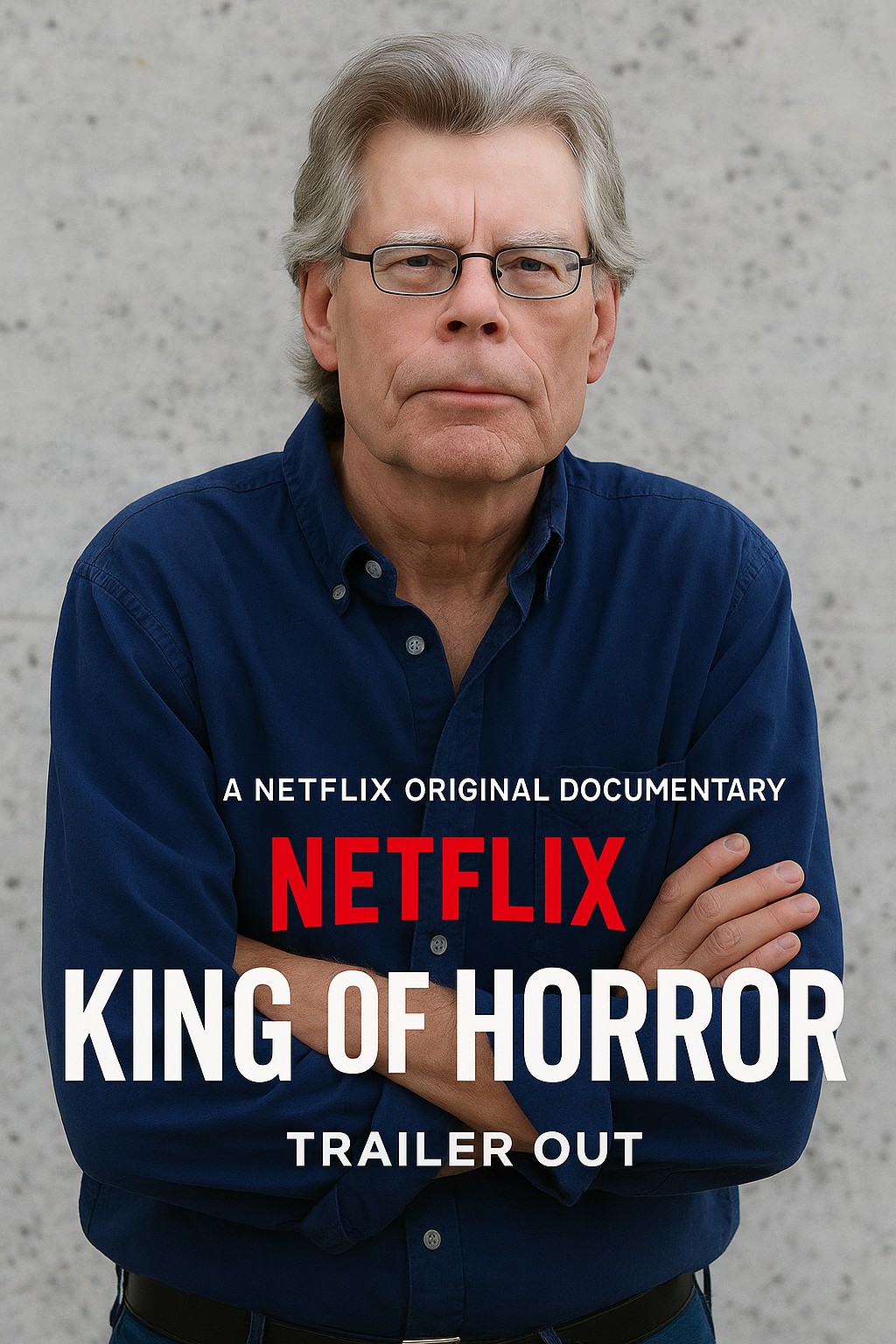
Stephen King, the undisputed master of horror and suspense, now takes center stage in a brand-new Netflix documentary series that delves deep into the twisted corridors of his imagination. The series, aptly titled Stephen King: The Mind of Fear, offers viewers an unprecedented look at the man behind the monsters — a writer whose words have haunted, thrilled, and captivated readers and moviegoers for decades. From Carrie to The Shining, from IT to The Green Mile, King’s influence on popular culture is undeniable, and this series sets out to explore how one man’s nightmares became a shared cultural phenomenon.
Through rare interviews, behind-the-scenes footage, and intimate glimpses into King’s writing process, Netflix gives fans what they’ve always craved — a chance to see how he turns ordinary fears into extraordinary stories. Directors, actors, and producers who have worked with him share insights into his methods and creative genius, revealing both the brilliance and the burden of a man whose mind never rests. As one critic puts it in the trailer, “To understand Stephen King is to confront what terrifies us all — and what fascinates us just as deeply.”
The documentary doesn’t shy away from the darker aspects of King’s life either. It explores his struggles with addiction, his near-fatal accident in 1999, and his uncanny ability to channel pain into art. Each episode focuses on a distinct phase of his career — the early days of rejection letters, the explosive fame of the 1980s, and his later years as a literary icon unafraid to evolve. Through it all, viewers come to see that the monsters in King’s books are never just supernatural; they are mirrors reflecting the fears we carry in real life.
Netflix also revisits the countless adaptations that brought King’s stories to the screen, from cult classics to modern masterpieces. Directors like Frank Darabont, Mike Flanagan, and Andy Muschietti discuss how they brought King’s words to life while staying true to his eerie tone. Archival footage from film sets and King’s own cameos add a nostalgic touch that longtime fans will adore. For many, the series is both a cinematic journey and a tribute to a storyteller who changed how we see fear itself.
What sets Stephen King: The Mind of Fear apart is its psychological depth. Instead of merely recounting King’s biography, it dissects what makes his writing tick — his fascination with small towns, moral decay, childhood trauma, and the unseen horrors lurking in plain sight. Through detailed analysis, the series paints King not only as a horror writer but as a chronicler of human nature. His stories, after all, are less about monsters and more about the monstrous potential within us all.
November 12, 2025. That’s the date fans will remember — the day Netflix dropped all episodes worldwide, inviting audiences to binge-watch one of the most anticipated literary documentaries of the decade. Within hours of release, social media exploded with reactions, theories, and heartfelt tributes to the author who made so many sleepless nights worth it. Critics have already begun calling it “Netflix’s most hauntingly beautiful documentary yet,” and it’s easy to see why.
By the final episode, the series leaves viewers not with fear, but with awe. King’s relentless drive, his empathy for outsiders, and his uncanny understanding of evil make him as complex as the worlds he creates. Whether he’s crafting tales about haunted hotels or killer clowns, King reminds us that horror isn’t about death — it’s about survival. It’s about facing what frightens us and coming out stronger.
In the end, Stephen King: The Mind of Fear is more than just a documentary. It’s a love letter to storytelling, a tribute to perseverance, and a chilling reminder that the scariest thing of all might be how much we enjoy being scared. Netflix has once again proven its mastery in blending artistry with authenticity, creating a series that honors a living legend while sending shivers down our spines. Stephen King has always said that stories are magic — and this one, fittingly, is his most spellbinding yet.

